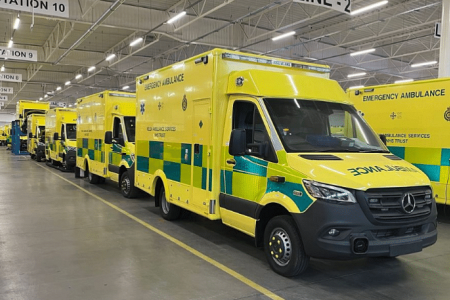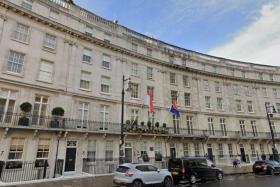‘Where’s my false teeth?’: Welsh Ambulance Service urges public to 'make the right call'
A person called the 999 emergency line in Wales after experiencing stomach pain after eating too much kebab.
Another person dialled the number over missing dentures.
One other person had a hand stuck in a letterbox.
Further 999 calls were made because of the person losing his or her voice, or having a ring stuck on a finger.
The Welsh Ambulance Service, which runs the 999 service, revealed on Jan 23 that of the 414,149 calls made in 2023, 68,416 were not a life-or-death emergency.
That is an average of 188 non-emergency calls a day, which prompted the service to remind people to tap the number only if someone is seriously ill or injured.
The service has released transcripts of some of the most inappropriate calls:
Call 1
Operator: Tell me exactly what’s happened.
Caller: Yesterday evening, we had some kebab, and I might have had a little bit more than I’m used to. Then this morning, I’ve had a very painful stomach.
Call 2
Caller: I have a bottom part denture, and I went to clean my teeth and I said ‘Where’s my false teeth?’ This sounds crazy… but I don’t know what else to do. Could I have swallowed my false teeth?
Operator: So, you don’t know where your false teeth are?
Call 3
Caller: What it is with her, her voice has given up on her. We don’t know what to do. We’ve tried lemon and whatever, but it’s not doing any good.
Operator: Where is she in pain?
Caller: It’s her throat. She can hardly speak.
Operator: And is it just that she’s lost her voice, is it?
Caller: Yeah.
Mr Andy Swinburn, executive director of paramedicine for the service, said inappropriate calls put additional strain on an already over-stretched service and may delay help for others.
“Our plea to the public is to apply your common sense – most people know the difference between a real emergency and something that is uncomfortable, painful or irritating but not life-threatening,” he added. “Make the right call.”
Mr Lee Brooks, executive director of operations, urged people to “take some ownership and accountability” for their health and well-being at a time when the National Health Service (NHS) services are stretched beyond measure.
NHS is the publicly funded healthcare system in Britain, of which the Welsh Ambulance Service is a part of.
Welsh Ambulance Service chief executive Jason Killens said some people might find accessing the NHS confusing and that the service is committed to helping people navigate the right pathway to the most appropriate service in the future.
“But until then, we need the public to continue to use us sensibly to protect our precious resources for those who need us most.”
Misuse of emergency numbers is not new.
Peel municipal police in Ontario, Canada, revealed that of the 644,106 calls to the 911 line in 2022, nearly 50 per cent or 1,765 calls per day, were deemed inappropriate.
The Singapore Civil Defence Force (SCDF) said in December 2023 that almost 5 per cent of the calls made to the 995 hotline are non-emergencies.
SCDF collaborated with popular humour site SGAG and came up with a two-minute YouTube music video, which gave examples of what is considered an emergency, and asked the public to think twice before making calls.
Get The New Paper on your phone with the free TNP app. Download from the Apple App Store or Google Play Store now


